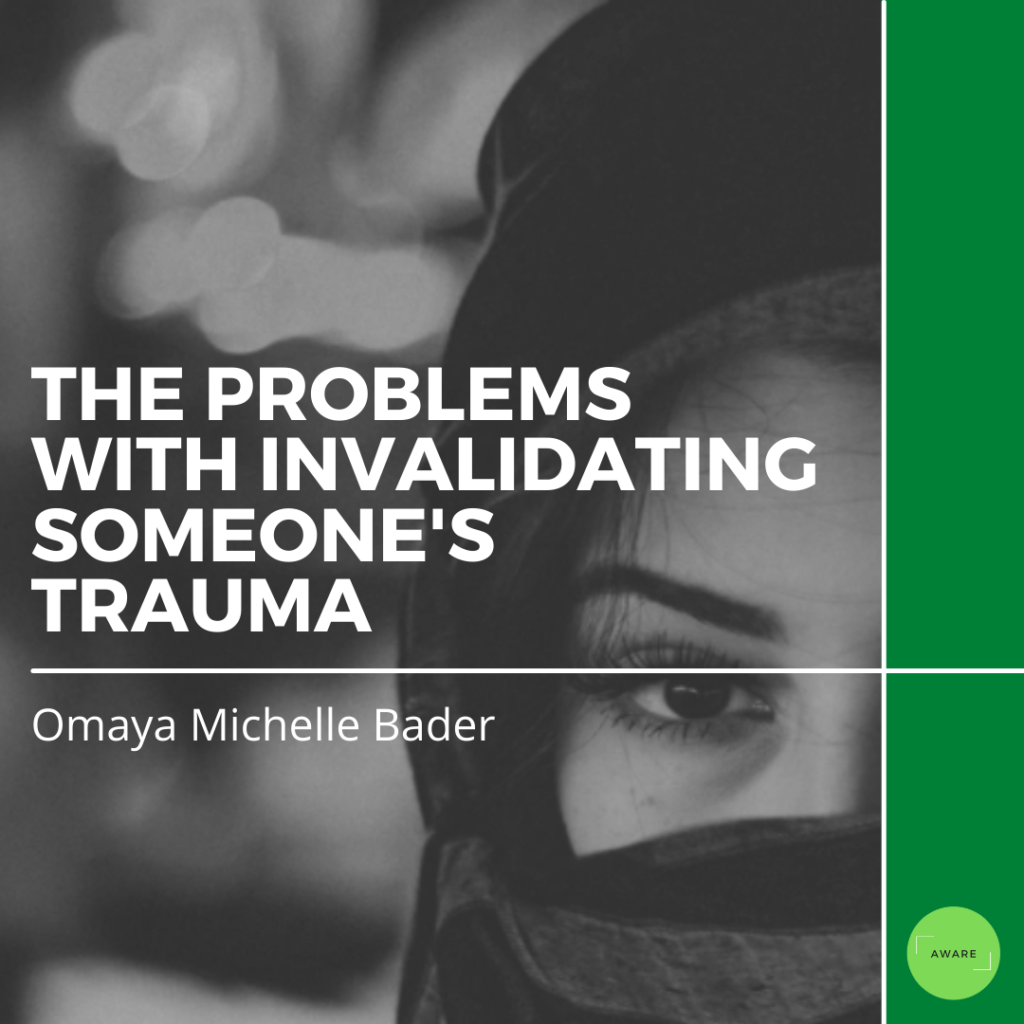Trigger warning: this article discusses self-harm and the effects of trauma on individuals.
Trauma is an emotional response to an overwhelming physical, emotional, or mental event that can result in long-term difficulties such as unpredictable emotions, flashbacks, strained relationships, and even physical symptoms like headaches or nausea. You may think – how can one not be empathetic to an individual experiencing the long-term effects of such a terrible incident? The simple answer to that is that they do not find it relatable, and this further enforces the effects the individual may further face.
The Problems with Invalidation
Everyone perceives incidences differently and what may drastically change one’s emotional and physical responses to future events may not have the same impact on someone else. With this in mind, it is important to stay mindful of other’s emotions and their responses to those emotions and have empathy and compassion to what an individual may have gone through, even if you do not understand it yourself.
According to licensed psychologist Dr. Jamie Long in her blog, “invalidation is the process of denying, rejecting, or dismissing someone’s feelings. Invalidation sends the message that a person’s subjective emotional experience is inaccurate, insignificant, and/or unacceptable.” Invalidating someone’s trauma is a huge problem that many people in today’s society face due to the misunderstanding and belittling of what they have gone through. Not only does this cause distress to the individual but can also cause mental illnesses such as post-traumatic stress disorder (PTSD), generalized anxiety disorder (GAD), social anxiety disorder (SAD), and major depressive disorder (MDD) to arise or worsen, cause individuals to act on harmful impulses, and discourage individuals from seeking professional help.
“Invalidation is one of the most damaging forms of emotional abuse and can make the recipient feel like they are going crazy! What is scary is that it can be one of the most subtle and unintentional abuses,” Long further reiterates.
How to Be There for Someone Experiencing Trauma
If a friend, family member, or peer confides in you and tells you about an incident that is causing them distress, it is important to validate their feelings. Here are some ways in which you can do so –
- Make time to be with the person and make it obvious that you are available.
- Do not take their feelings to heart.
- You can help by reassuring the person that their reactions are normal.
- Offer practical support.
- Suggest and encourage them to speak to a professional.
Things to Remember if You Are Experiencing Trauma
If you have experienced a tragic event in your life that has caused you trauma, it is important to note that you should not invalidate yourself. Your trauma does not have to “teach you a lesson” or “make you stronger”. Trauma happens for no reason, and you do not deserve what happened to you. Here are some affirmations to practice if you are having difficulties:
- My trauma is still valid even if I did not realize it was a traumatic event until later on.
- My trauma is still valid even if I know people who have been through worse.
- My trauma is still valid even if my life was not threatened.
- My trauma is still valid even if I did not develop PTSD.
- My trauma is still valid even if I am feeling better now.
- My trauma is still valid even if people do not believe me.
- My trauma is still valid even if it happened a long time ago.
- My trauma is still valid even if I cannot remember all of it.
- My trauma is still valid even if I never told anyone.
If you or someone you know is experiencing the effects of trauma, it is important to note that psychological help is available, and it is important to reach out to a licensed professional.
